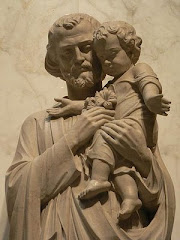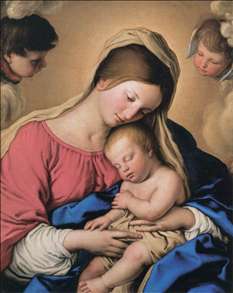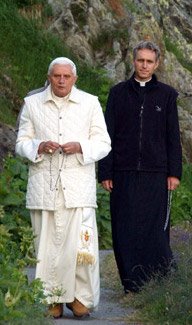TE DEUM laudamus: te Dominum confitemur.
O GOD, we praise Thee: we acknowledge Thee to be the Lord.
Te aeternum Patrem omnis terra veneratur.
Everlasting Father, all the earth doth worship Thee.
Tibi omnes Angeli; tibi Caeli et universae Potestates;
To Thee all the Angels, the Heavens and all the Powers,
Tibi Cherubim et Seraphim incessabili voce proclamant:
all the Cherubim and Seraphim, unceasingly proclaim:
Sanctus, Sanctus, Sanctus, Dominus Deus Sabaoth.
Holy, Holy, Holy, Lord God of Hosts!
Pleni sunt caeli et terra maiestatis gloriae tuae.
Heaven and earth are full of the Majesty of Thy glory.
Te gloriosus Apostolorum chorus,
The glorious choir of the Apostles,
Te Prophetarum laudabilis numerus,
the wonderful company of Prophets,
Te Martyrum candidatus laudat exercitus.
the white-robed army of Martyrs, praise Thee.
Te per orbem terrarum sancta confitetur Ecclesia,
Holy Church throughout the world doth acknowledge Thee:
Patrem immensae maiestatis:
the Father of infinite Majesty;
Venerandum tuum verum et unicum Filium;
Thy adorable, true and only Son;
Sanctum quoque Paraclitum Spiritum.
and the Holy Spirit, the Comforter.
Tu Rex gloriae, Christe.
O Christ, Thou art the King of glory!
Tu Patris sempiternus es Filius.
Thou art the everlasting Son of the Father.
Tu ad liberandum suscepturus hominem, non horruisti Virginis uterum.
Thou, having taken it upon Thyself to deliver man, didst not disdain the Virgin's womb.
Tu, devicto mortis aculeo, aperuisti credentibus regna caelorum.
Thou overcame the sting of death and hast opened to believers the Kingdom of Heaven.
Tu ad dexteram Dei sedes, in gloria Patris.
Thou sitest at the right hand of God, in the glory of the Father.
Iudex crederis esse venturus.
We believe that Thou shalt come to be our Judge.
Te ergo quaesumus, tuis famulis subveni: quos pretioso sanguine redemisti.
We beseech Thee, therefore, to help Thy servants whom Thou hast redeemed with Thy Precious Blood.
Aeterna fac cum sanctis tuis in gloria numerari.
Make them to be numbered with Thy Saints in everlasting glory.
V. Salvum fac populum tuum, Domine, et benedic hereditati tuae.
V. Save Thy people, O Lord, and bless Thine inheritance!
R. Et rege eos, et extolle illos usque in aeternum.
R. Govern them, and raise them up forever.
V. Per singulos dies benedicimus te.
V. Every day we thank Thee.
R. Et laudamus nomen tuum in saeculum, et in saeculum saeculi.
R. And we praise Thy Name forever, yea, forever and ever.
V. Dignare, Domine, die isto sine peccato nos custodire.
V. O Lord, deign to keep us from sin this day.
R. Miserere nostri, Domine, miserere nostri.
R. Have mercy on us, O Lord, have mercy on us.
V. Fiat misericordia tua, Domine, super nos, quemadmodum speravimus in te.
V.We praise thee, O God, we acknowledge thee to be the Lord.
All the earth doth worship thee, the Father everlasting.
To thee all Angels cry aloud: the Heavens, and all the Powers therein.
To thee Churubin and Seraphin continually do cry,
Holy, Holy, Holy, Lord God of Sabaoth;
Heaven and earth are full of the Majesty of thy Glory.
The glorious company of the Apostles praise thee.
The goodly fellowship of the Prophets praise thee.
The noble army of Martyrs praise thee.
The holy Church throughout all the world doth acknowledge thee;
The Father, of an infinite Majesty;
Thine honourable, true, and only Son;
Also the Holy Ghost, the Comforter.
Thou art the King of Glory, O Christ!
Thou art the everlasting Son of the Father.
When thou tookest upon thee to deliver man, thou didst not abhor the Virgin’s womb.
When thou hadst overcome the sharpness of death, thou didst open the Kingdom of Heaven to all believers.
Thou sittest at the right hand of God in the Glory of the Father.
We believe that thou shalt come to be our Judge.
We therefore pray thee, help thy servants whom thou hast redeemed with thy precious blood.
Make them to be numbered with thy Saints in glory everlasting.
O Lord, save thy people and bless thine heritage.
Govern them, and lift them up for ever.
Day by day we magnify thee;
And we worship thy Name, ever world without end.
Vouchsafe, O Lord, to keep us this day without sin.
O Lord, have mercy upon us: have mercy upon us.
O Lord, let thy mercy lighten upon us: as our trust is in thee.
O Lord, in thee have I trusted: let me never be confounded. Let Thy mercy, O Lord, be upon us, for we have hoped in Thee.
R. In te, Domine, speravi: non confundar in aeternum.
R. O Lord, in Thee I have hoped; let me never be put to shame
























